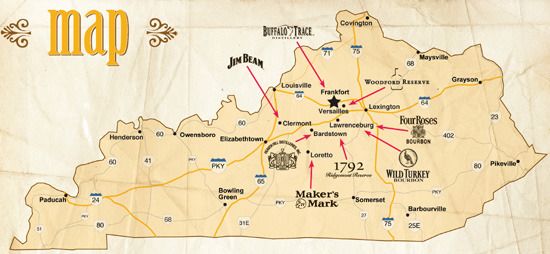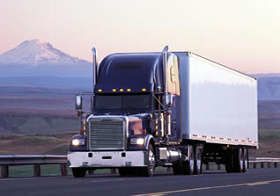How Hard Is It To Find Local Truck Driving Jobs Vs Long Haul?
Topic 9998 | Page 3
Let's just put it simply. You have options. You are not obligated to go one direction or another. You really need to do your own research on the job market in your area. Make phone calls to jobs that look interesting to you. Find out if experience is absolutely required or if they would consider training.
Also the idea that local jobs work you to death can be a little misleading. Generally local jobs involve delivering some sort of product to customers. Well since most customers don't usually open or start doing business until morning time you don't generally start that early. Yes of course there is exceptions to this. For me I start my day between 8 and 9 am and usually I'm home between 6 and 7 pm. Those really aren't crazy hours. Am I very fortunate that I landed this job? Of course I am. I would never admit otherwise. But I didn't fly blindly into this either. I made calls and knew my areas job market before I even got into school.
Are there risks to going local right away, yes as others have pointed out. But there are risks to going OTR too. What if you go into paid training with a company that does not really meet what you're looking for? Do you quit? Well if you do that then you'll owe them a bunch of money. What of you hit something? Being OTR means that by averages you're more likely to hit another car than a stationary object just because of the time normally spent on open highway. Us local guys tend to have to worry more about gates and fences and many other things because we spend our days backing. Plus you've mentioned that going OTR isn't your thing. Do you really want to burn yourself up hating driving truck for a year just so you can go local. More than likely you'll hate your career choice and not do it because you forced yourself into a situation you already knew you weren't going to like.
Look I'm not one to argue with Brett and OS because when they're right they're right. They've been doing this much longer than me. I do feel however like I'm obligated to share my experience with others and encourage other opportunities when the time comes. I wish you the best of luck with making the decision that's right for you
OTR:
Over The Road
OTR driving normally means you'll be hauling freight to various customers throughout your company's hauling region. It often entails being gone from home for two to three weeks at a time.
Dm:
Dispatcher, Fleet Manager, Driver Manager
The primary person a driver communicates with at his/her company. A dispatcher can play many roles, depending on the company's structure. Dispatchers may assign freight, file requests for home time, relay messages between the driver and management, inform customer service of any delays, change appointment times, and report information to the load planners.HOS:
Hours Of Service
HOS refers to the logbook hours of service regulations.Yep, I'd love a more local job too. HOWEVER, in my neck of the woods (Louisville, KY area) people drive CRAZY. We have some of the highest insurance rates in the country in this god-forsaken state for a reason. These people can't seem to drive on dry pavement much less a little rain or god help us, snow. Do any of you recall hearing about what happened on I-65 near Elizabethtown this past spring? Give me OTR for a while.. I'll gladly suck it up or even be willing to move.
OTR:
Over The Road
OTR driving normally means you'll be hauling freight to various customers throughout your company's hauling region. It often entails being gone from home for two to three weeks at a time.
Sue D. calls Kentucky a ...
god-forsaken state


Sue D. calls Kentucky a ...
god-forsaken state
I think you just explained why so many of them drive crazy!

I got my CDL A about 6 months ago hired on with local excavation company making 14 hr here in Alabama work about 10 to 12 hours a day 5 days a week sometimes a Saturday here or there depending on weather and what projects are available. I drive a 10 speed triaxle dump running anywhere from 79,000 to 82,500 lbs daily. Average about 350 to 450 miles per day. Sand , gravel, chirt, topsoil, O and also get a little time each week in the dump trailer hauling sand - practice my 5th wheel backing and driving. That loads out around 85,000 avg
Hope that helps someone
Mark
...but there're a lot of goals that I have outside of the workplace that I wouldn't be able to work on during that time, which is the main reason why I would prefer not to (finishing up my degree and working on music are the main ones).
James. One very important thing to realize about going local is that you will be working long hours, typically. This means that you might not have much time to do anything but work during the work week, and recuperate / relax / do chores during your weekends. Not all local jobs are equal. Some pay a lot more, some require more hours. LTL is one avenue of local trucking, although linehaul can typically have you traveling 300-600 miles a day, which isn't really considered 'local.'
I'm a linehaul driver and will typically work 10-14 hours a day. P&D guys (pickup and delivery) can work an average of 12 hours. I can't speak for construction driving, container hauling, or food service, but you can check out my thread on LTL (which includes descriptions of linehaul and P&D). LTL offers some of the highest paying trucking jobs in the industry. But you've got to be in the right area.
Going back to the daily life of somebody who gets home daily. I have a young family. Basically, I work my five days, and on my weekends I try to manage my time by spending it with my family, doing chores, etc... I don't have a lot of free time, even though I'm home every day. But ... I get paid well, and have the reward of supporting my family. Lots of singles can bemoan the amount of hours they're working while doing local driving, but being home daily in the trucking industry requires another form of sacrifice.
CDL:
Commercial Driver's License (CDL)
A CDL is required to drive any of the following vehicles:
- Any combination of vehicles with a gross combined weight rating (GCWR) of 26,001 or more pounds, providing the gross vehicle weight rating (GVWR) of the vehicle being towed is in excess of 10,000 pounds.
- Any single vehicle with a GVWR of 26,001 or more pounds, or any such vehicle towing another not in excess of 10,000 pounds.
- Any vehicle, regardless of size, designed to transport 16 or more persons, including the driver.
- Any vehicle required by federal regulations to be placarded while transporting hazardous materials.
LTL:
Less Than Truckload
Refers to carriers that make a lot of smaller pickups and deliveries for multiple customers as opposed to hauling one big load of freight for one customer. This type of hauling is normally done by companies with terminals scattered throughout the country where freight is sorted before being moved on to its destination.
LTL carriers include:
- FedEx Freight
- Con-way
- YRC Freight
- UPS
- Old Dominion
- Estes
- Yellow-Roadway
- ABF Freight
- R+L Carrier
P&D:
Pickup & Delivery
Local drivers that stay around their area, usually within 100 mile radius of a terminal, picking up and delivering loads.
LTL (Less Than Truckload) carriers for instance will have Linehaul drivers and P&D drivers. The P&D drivers will deliver loads locally from the terminal and pick up loads returning to the terminal. Linehaul drivers will then run truckloads from terminal to terminal.
Linehaul:
Linehaul drivers will normally run loads from terminal to terminal for LTL (Less than Truckload) companies.
LTL (Less Than Truckload) carriers will have Linehaul drivers and P&D drivers. The P&D drivers will deliver loads locally from the terminal and pick up loads returning them to the terminal. Linehaul drivers will then run truckloads from terminal to terminal.New Reply:
New! Check out our help videos for a better understanding of our forum features

















Preview:
This topic has the following tags:
Advice For New Truck Drivers Choosing A Trucking Company Local CDL Drivers LTL Driving Truck Driving Lifestyle







 TT On Facebook
TT On Facebook
So you feel a case study involving two people in an industry of 3.5 million is all the evidence we need to draw the conclusion that Old School doesn't know what he's talking about then, huh? No, I'm here to tell you that Old School is right. And I agree wholeheartedly with everything he said:
There's a big difference between seeing the big picture and looking long term versus seeing what you hope to see and thinking about right now. Old School and I think long term. We see the big picture, we know how the industry works, and we try to help people make decisions that give them the best chance at a safe, strong start to their career. And the best chance you'll have is by going OTR your first year. We're not saying that our way is any sort of guarantee nor are we saying there is no other way. What we're giving people is the safest, surest route we know of to establish a great foundation to a new career in trucking. And the safest way to get your career started is OTR.
This is very important point in the grand scheme of things. A lot of people picture getting a local job, doing the 9 to 5 thing, and having plenty of free time for other things. Unfortunately the logbook rules that govern local jobs are the same as OTR - 70 hours on duty every 8 days. That's almost like having two full time jobs. You'll find some local drivers that put in 40 hour weeks, but the overwhelming majority put in closer to 60 when all is said and done.
Now I've never had a family so that would change things, but I've had several local jobs over the years and to me they just weren't worth it. From the time you leave the house until you get home is often 14+ hours. You get home, take a shower, eat, and go to bed because you'll be starting another 14 hour day in a few hours. You do this for 5 or 6 days and you realize you really have no life. You get one day a week to sleep and recover, another day to catch up on chores, and before you know it it's Monday again.
Now if I had a family I would see things differently. Whatever time I could get at home I would take. But James didn't mention having a family in his post. He did mention that the OTR lifestyle doesn't sound appealing. I just wanted to point out that getting a local job often times isn't much of a lifestyle either. You just feel like all you do is work. That's how I felt, anyhow. I'd rather be on the road five days a week and get home on weekends. That way I get to enjoy some of the travelling lifestyle during the week, make about the same as you'd make driving OTR, but still be home on weekends to do the social life thing.
Very true.
Logbook:
A written or electronic record of a driver's duty status which must be maintained at all times. The driver records the amount of time spent driving, on-duty not driving, in the sleeper berth, or off duty. The enforcement of the Hours Of Service Rules (HOS) are based upon the entries put in a driver's logbook.
OTR:
Over The Road
OTR driving normally means you'll be hauling freight to various customers throughout your company's hauling region. It often entails being gone from home for two to three weeks at a time.
Over The Road:
Over The Road
OTR driving normally means you'll be hauling freight to various customers throughout your company's hauling region. It often entails being gone from home for two to three weeks at a time.